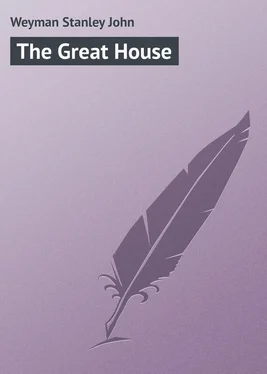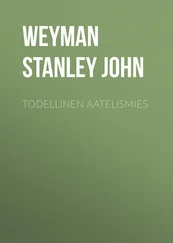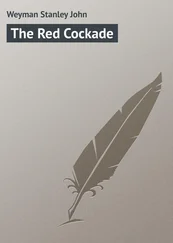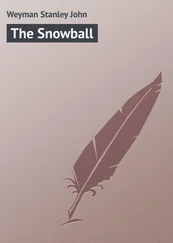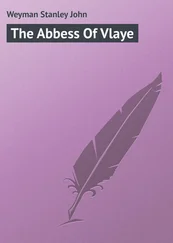Stanley Weyman - The Great House
Здесь есть возможность читать онлайн «Stanley Weyman - The Great House» — ознакомительный отрывок электронной книги совершенно бесплатно, а после прочтения отрывка купить полную версию. В некоторых случаях можно слушать аудио, скачать через торрент в формате fb2 и присутствует краткое содержание. Жанр: foreign_language, foreign_prose, на английском языке. Описание произведения, (предисловие) а так же отзывы посетителей доступны на портале библиотеки ЛибКат.
- Название:The Great House
- Автор:
- Жанр:
- Год:неизвестен
- ISBN:нет данных
- Рейтинг книги:4 / 5. Голосов: 1
-
Избранное:Добавить в избранное
- Отзывы:
-
Ваша оценка:
- 80
- 1
- 2
- 3
- 4
- 5
The Great House: краткое содержание, описание и аннотация
Предлагаем к чтению аннотацию, описание, краткое содержание или предисловие (зависит от того, что написал сам автор книги «The Great House»). Если вы не нашли необходимую информацию о книге — напишите в комментариях, мы постараемся отыскать её.
The Great House — читать онлайн ознакомительный отрывок
Ниже представлен текст книги, разбитый по страницам. Система сохранения места последней прочитанной страницы, позволяет с удобством читать онлайн бесплатно книгу «The Great House», без необходимости каждый раз заново искать на чём Вы остановились. Поставьте закладку, и сможете в любой момент перейти на страницу, на которой закончили чтение.
Интервал:
Закладка:
"But Mottisfont is a Tory," Basset objected.
"So is Peel. They are both in Bagenal's bad books. Bagenal is sure that Peel is going back to the cotton people he came from. Spinning Jenny spinning round again!"
"I see."
"I asked him," Audley continued, rubbing his knees with sly enjoyment, "what Stubbs the lawyer was doing about it. He's the party manager. Why didn't he come to me?"
Basset smiled. "What did he say to that?"
"Hummed and hawed. At last he said that owing to Stubbs's connection with-you know who-it was thought that he was not the right person to come to me. So I asked him what Stubbs's employer was going to do about it."
"Ah!"
"He didn't know what to say to that, the ass! Thought I should go the other way, you see. So I told him" – John Audley laughed maliciously as he spoke-"that, for the landed interest, the law had taken away my land, and, for politics, I would not give a d-n for either party in a country where men did not get their rights! Lord! how he looked!"
"Well, you didn't hide your feelings."
"Why should I?" John Audley asked cheerfully. "What will they do for me? Nothing. Will they move a finger to right me? No. Then a plague on both their houses!" He snapped his fingers in schoolboy fashion and rose to his feet. He lit a candle, taking a light from the fire with a spill. "I am going to bed now, Peter. Unless-" he paused, the candlestick in his hand, and gazed fixedly at his companion. "Lord, man, what we could do in two or three hours! In two or three hours. This very night!"
"I've told you that I will have nothing to do with it!" Basset repeated.
John Audley sighed, and removing his eyes, poked the wick of the candle with the snuffers. "Well," he said, "good-night. We must look to bright eyes and red lips to convert you. What a man won't do for another he will do for himself, Peter. Good-night."
Left alone, Basset stared fretfully at the fire. It was not the first time by scores that John Audley had tried him and driven him almost beyond bearing. But habit is a strong tie, and a common taste is a bond even stronger. In this room, and from the elder man, Basset had learned to trace a genealogy, to read a coat, to know a bar from a bend, to discourse of badges and collars under the guidance of the learned Anstie or the ingenious Le Neve. There he had spent hours flitting from book to book and chart to chart in the pursuit, as thrilling while it lasted as any fox-chase, of some family link, the origin of this, the end of that, a thing of value only to those who sought it, but to them all-important. He could recall many a day so spent while rain lashed the tall mullioned windows or sunlight flooded the window-seat in the bay; and these days had endeared to him every nook in the library from the folio shelves in the shadowy corner under the staircase to the cosey table near the hearth which was called "Mr. Basset's," and enshrined in a long drawer a tree of the Bassets of Blore.
For he as well as Audley came of an ancient and shrunken stock. He also could count among his forbears men who had fought at Blore Heath and Towton, or had escaped by a neck from the ruin of the Gunpowder Plot. So he had fallen early under the spell of the elder man's pursuits, and, still young, had learned from him to live in the past. Later the romantic solitude of the Gatehouse, where he had spent more of the last six years than in his own house at Blore, had confirmed him in the habit.
Under the surface, however, the two men remained singularly unlike. While a fixed idea had narrowed John Audley's vision to the inhuman, the younger man, under a dry and reserved exterior-he was shy, and his undrained acres, his twelve hundred a year, poorly supported an ancient name-was not only human, but in his way was something of an idealist. He dreamed dreams, he had his secret aspirations, at times ambition of the higher kind stirred in him, he planned plans and another life than this. But always-this was a thing inbred in him-he put forward the commonplace, as the cuttle-fish sheds ink, and hid nothing so shyly as the visions which he had done nothing to make real. On those about him he made no deep impression, though from one border of Staffordshire to the other his birth won respect. Politics viewed as a game, and a selfish game, had no attraction for him. Quarter Sessions and the Bench struck no spark from him. At the Races and the County Ball richer men outshone him. But given something to touch his heart and fire his ambition, he had qualities. He might still show himself in another light.
Something of this, for no reason that he could imagine, some feeling of regret for past opportunities, passed through his mind as he sat fretting over John Audley's folly. But after a time he roused himself and became aware that he was tired; and he rose and lit a candle. He pushed back the smouldering logs and slowly and methodically he put out the lights. He gave a last thought to John Audley. "There was always one maggot in his head," he muttered, "now there's a second. What I would not do to please him, he thinks I shall do to please another! Well, he does not know her yet!"
He went to bed.
CHAPTER VIII
THE GATEHOUSE
It is within the bounds of imagination that death may make no greater change in our inner selves than is wrought at times by a new mood or another outlook. When Mary, an hour before the world was astir on the morning after her arrival, let herself out of the Gatehouse, and from its threshold as from a ledge saw the broad valley of the Trent stretched before her in all the beauty of a May morning, her alarm of the past night seemed incredible. At her feet a sharp slope, clothed in gorse and shrub, fell away to meet the plain. It sank no more than a couple of hundred feet, but this was enough to enable her to follow the silver streak of the river winding afar between park and coppice and under many a church tower. Away to the right she could see the three graceful spires of Lichfield, and southward, where an opal haze closed the prospect, she could imagine the fringe of the Black Country, made beautiful by distance.
In sober fact few parts of England are less inviting than the low lands of Staffordshire, when the spring floods cover them or the fogs of autumn cling to the cold soil. But in spring, when larks soar above them and tall, lop-sided elms outline the fields, they have their beauty; and Mary gazed long at the fair prospect before she turned her back on it and looked at the house that was fated to be her home.
It was what its name signified, a gatehouse; yet by turns it could be a sombre and a charming thing. Some Audley of noble ideas, a man long dead, had built it to be the entrance to his demesne. The park wall, overhung by trees, still ran right and left from it, but the road which had once passed through the archway now slid humbly aside and entered the park by a field gate. A wide-latticed Tudor tower, rising two stories above the arch and turreted at the four corners, formed the middle. It was buttressed on either hand by a lower building, flush with it and of about the same width. The tower was of yellowish stone, the wings were faced with stained stucco. Right and left of the whole a plot of shrubs masked on the one hand the stables, on the other the kitchens-modern blocks set back to such a distance that each touched the old part at a corner only.
He who had planned the building had set it cunningly on the brow of the Great Chase, so that, viewed from the vale, it rose against the skyline. On dark days it broke the fringe of woodland and stood up, gloomy and forbidding, the portal of a Doubting Castle. On bright days, with its hundred diamond panes a-glitter in the sunshine, it seemed to be the porch of a fairy palace, the silent home of some Sleeping Beauty. At all times it imposed itself upon men below and spoke of something beyond, something unseen, greater, mysterious.
Читать дальшеИнтервал:
Закладка:
Похожие книги на «The Great House»
Представляем Вашему вниманию похожие книги на «The Great House» списком для выбора. Мы отобрали схожую по названию и смыслу литературу в надежде предоставить читателям больше вариантов отыскать новые, интересные, ещё непрочитанные произведения.
Обсуждение, отзывы о книге «The Great House» и просто собственные мнения читателей. Оставьте ваши комментарии, напишите, что Вы думаете о произведении, его смысле или главных героях. Укажите что конкретно понравилось, а что нет, и почему Вы так считаете.
